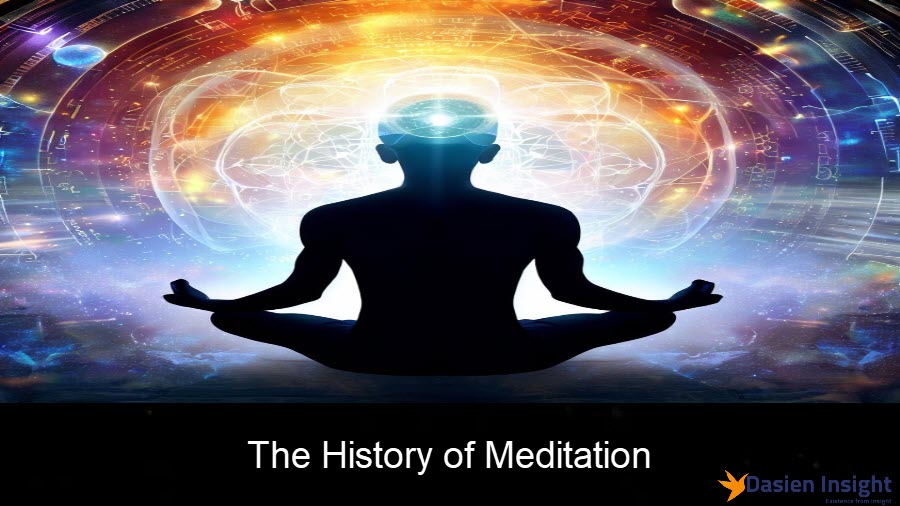The Science Behind Meditation: Unlocking the Power of Mindfulness

Meditation is an ancient practice that has gained significant popularity in recent years. It offers a myriad of benefits for both the mind and body. In This article we will explore the science behind meditation, shedding light on its profound effects and the power of mindfulness.
Understanding Meditation
What is meditation?
Meditation is a practice that involves training the mind to focus and redirect thoughts. It often includes techniques such as mindfulness, concentration, and contemplation. By engaging in regular meditation, individuals aim to achieve a state of mental clarity and emotional calm.
Historical Origins of Meditation
The roots of meditation can be traced back thousands of years to ancient civilizations such as India, China, and Egypt. It has been an integral part of various religious and spiritual traditions, including Buddhism and Hinduism. Over time, meditation techniques have evolved and spread to different parts of the world.
Types of meditation
There are numerous meditation techniques, each with its unique approach and benefits. Some common types of meditation include:
- Mindfulness meditation: This practice involves focusing on the present moment, and observing thoughts and sensations without judgment.
- Transcendental meditation: It utilizes the repetition of a mantra to achieve a deep state of relaxation and inner peace.
- Loving-kindness meditation: This form of meditation involves cultivating feelings of love, compassion, and goodwill towards oneself and others.
- Guided meditation: It involves following the guidance of an instructor or using recorded audio to navigate through the meditation process.
The Mind-Body Connection
Effects of Stress on the Body
Stress can have detrimental effects on both physical and mental health. It triggers the release of stress hormones, such as cortisol, which can lead to various health problems, including cardiovascular disease, weakened immune system, and mental disorders.
How meditation affects the brain
Scientific research has shown that regular meditation can bring about significant changes in the brain. It has been found to increase the thickness of the prefrontal cortex, the area associated with attention and self-awareness. Additionally, meditation activates the relaxation response, reducing the activity in the amygdala, the brain’s center for fear and stress.
Meditation and emotional well-being
Meditation has a profound impact on emotional well-being. It helps regulate emotions by increasing activity in the prefrontal cortex, which is responsible for emotional control and regulation. By practicing mindfulness and cultivating positive emotions, individuals can experience reduced anxiety, and depression, and improved overall mood.
Scientific Benefits of Meditation
Reduced stress and anxiety
One of the most well-known benefits of meditation is its ability to reduce stress and anxiety. By engaging in meditation, individuals can activate the body’s relaxation response, leading to a decrease in stress hormones and a sense of calmness.
Improved focus and concentration
Regular meditation practice has been shown to enhance focus and concentration. It improves the ability to sustain attention and resist distractions, leading to increased productivity and mental clarity.
Enhanced creativity and problem-solving
Meditation cultivates a state of open awareness, allowing individuals to tap into their creative potential. It helps to quiet the mind, enabling new perspectives and innovative solutions to emerge.
Better sleep quality
Insomnia and sleep disturbances can significantly impact overall well-being. Meditation promotes relaxation and reduces the activity of the mind, helping individuals achieve a night of more restful sleep and wake up feeling refreshed.
Meditation and Physical Health
Lower blood pressure
High blood pressure is a common health issue that can increase the risk of cardiovascular diseases. Regular meditation has been shown to lower blood pressure, promote heart health and reduce the risk of stroke and heart attacks.
Strengthened immune system
The immune system plays a vital role in protecting the body against infections and diseases. Studies have found that meditation strengthens the immune response by increasing the activity of natural killer cells and enhancing the body’s defense mechanisms.
Pain management
Chronic pain can significantly impact an individual’s quality of life. Meditation has been found to reduce the perception of pain by altering the brain’s pain-processing pathways. It can provide natural pain relief and complement traditional pain management approaches.
Slowed aging process
Meditation has been associated with anti-aging effects at the cellular level. It helps to reduce cellular damage caused by stress and inflammation, promoting longevity and overall health.
Incorporating Meditation into Daily Life
Establishing a meditation practice
To experience the benefits of meditation, it is important to establish a regular practice. Start by dedicating a specific time and place for meditation, free from distractions. Begin with shorter sessions and gradually increase the duration as your practice progresses.
Finding the right technique for you
With various meditation techniques available, it is essential to find the one that resonates with you. Experiment with different approaches, such as mindfulness, guided meditation, or transcendental meditation, and choose the technique that feels most comfortable and effective for your needs.
Overcoming common challenges
Meditation can present challenges, especially for beginners. Common obstacles include a wandering mind, restlessness, and difficulty maintaining consistency. Overcoming these challenges requires patience, persistence, and a non-judgmental attitude. Practicing self-compassion and seeking guidance from experienced practitioners can be helpful.
Conclusion
Meditation is a powerful tool for cultivating mindfulness and unlocking the potential of the mind. Its benefits extend beyond relaxation and stress reduction, encompassing improved focus, emotional well-being, and physical health. By incorporating meditation into daily life, individuals can harness its transformative power and lead a more balanced and fulfilling existence.
Frequently Asked Questions (FAQs)
The duration of meditation varies for each individual. Starting with just a few minutes a day can yield noticeable benefits. Gradually increase the duration to 15-30 minutes or longer, based on your preferences and schedule.
Yes, meditation can be a valuable tool for managing chronic pain. It helps to reduce pain perception and promotes relaxation, providing natural pain relief.
While meditation can be beneficial for anxiety and depression, it should not replace professional medical treatment. It can complement conventional therapies and support overall mental well-being.
Yes, having thoughts during meditation is normal. The goal is not to eliminate thoughts but to observe them without judgment and gently bring the focus back to the present moment.
Yes, meditation is suitable for people of all ages. It can be adapted to suit the needs and abilities of children and older adults, promoting their overall well-being.


